What My Parents Taught Me About Love
When it comes to writing romance, I tend to draw a lot from personal knowledge and experience. Though I have lived a few interesting stories of my own, the truth is that I learned most of what I know about love from my parents. They’ve been my inspiration for as long as I can remember, and they’re the reason I have so much faith in love today. My love stories feature healthy relationships and happy endings because that’s the reality I grew up witnessing every single day.
So what are the secrets to writing a love that’s true? Here are a few tips I learned from my parents that I love to implement as much in my stories as in my personal life. I hope you can learn some valuable lessons from them too! Enjoy!
1) The best kind of love blossoms from friendship.
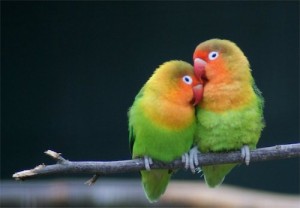 Anyone who has read at least a few of my romantic stories has no doubt noticed that most of the love I write grows between characters who start out as friends. My parents met well before they got together, and I think the reason they get along so well today is because they’ve known from the very beginning that they have enough in common to make things work. Not too much, of course, but that’s where the next piece of advice comes in…
Anyone who has read at least a few of my romantic stories has no doubt noticed that most of the love I write grows between characters who start out as friends. My parents met well before they got together, and I think the reason they get along so well today is because they’ve known from the very beginning that they have enough in common to make things work. Not too much, of course, but that’s where the next piece of advice comes in…
2) The key to everlasting love is mutual respect.
As alike as they seem sometimes, my parents are two very different people. My mom is soft-spoken and attentive, while my dad is loud and passionate. The key to their successful relationship is that they never try to impose elements of their personalities on each other, but rather appreciate each other’s strengths and accept their differences as the dynamic that keeps their marriage interesting. In other words, they avoid making that common married-couple mistake of trying to change each other. Not that they don’t learn from one another, of course, but when they do, it’s thanks to their intelligence and willingness to each be the best spouse the other deserves, which makes for a much healthier kind of relationship. They’ve become better people together not because they felt obligated to, but because they wanted to.
3) It’s important that you make each other laugh. Always.
When I think back on all the times I’ve noticed my parents interacting, I realize that I’ve heard them laugh much more often than I’ve heard them argue. Even when I’d overhear them getting upset about something, it would never take too long for one of them to say something silly that would start them both laughing about the whole thing. And I’m certain that’s what’s kept them together to this day. If I’ve learned anything from observing my parents’ relationship my whole life, it’s that love is only worth holding onto if it brings you much greater joy than sorrow. This may be the most important piece of advice my dad ever gave us: if you’re not laughing anymore, it’s time to jump ship.
4) Marry someone you love talking to.
Something else I’ve always noticed about my parents’ relationship is that they talk to each other about almost everything. Maybe it’s because they have similar yet distinct ways of thinking, so they’re usually interested in what the other has to say. Occasional difficulties in listening aside (mostly on my father’s part), my mom and dad have always been on the same page when it comes to communication. Of course, this made it nearly impossible for me and my sisters to get away with anything, but that just helped us to grow up as well-disciplined and happy children. That’s another important lesson we learned from our parents: to maintain a healthy relationship, communication is a must.
5) Learn to let the little things go and just enjoy life!
 This advice technically applies to anyone, but it’s especially important for committed couples. If you and your significant other get hung up on every little thing in your relationship that upsets you, you’re eventually going to drive each other crazy. That’s why my mom and dad never get stuck on minor issues for very long. When it comes to their arguments, they’re more about the “forgive and forget” philosophy, because they know that in the long run, those little spats are not worth stressing over. Instead, they focus on the important things, they support each other through thick and thin, and they make the most of each other’s company to just enjoy life. Can you really imagine a more perfect love than that?
This advice technically applies to anyone, but it’s especially important for committed couples. If you and your significant other get hung up on every little thing in your relationship that upsets you, you’re eventually going to drive each other crazy. That’s why my mom and dad never get stuck on minor issues for very long. When it comes to their arguments, they’re more about the “forgive and forget” philosophy, because they know that in the long run, those little spats are not worth stressing over. Instead, they focus on the important things, they support each other through thick and thin, and they make the most of each other’s company to just enjoy life. Can you really imagine a more perfect love than that?
These are the lessons about love that I’ve learned from my parents, and I’m grateful to them every day for the example they’ve set for my sisters and me. I only hope to experience a love like theirs throughout my life, but for now, I’ll keep using it as inspiration for my romantic fiction, as I hope you can too. Good luck! Thanks for reading!
Dedicated to my parents, the happiest couple I know. Thank you for teaching me what true love really is. Happy Anniversary, Mom and Dad! I love you!
Writer’s Toolkit: Grammarly®
Remember that Grammarly quiz I shared last month in celebration of Grammar Day? Well, around the same time, the good people over at Grammarly offered me a free trial of their grammar checker as a gift for the occasion! Naturally, it was the perfect opportunity to try it out and write a review on it for my Writer’s Toolkit segment. After all, even the best writers need a little help checking their spelling and grammar, right?
So without further ado, here is my review of the Grammarly grammar checker. Enjoy!
About Grammarly
Grammarly, or the Grammarly®Editor, is a spelling and grammar checker that automatically proofreads text in English. According to the site’s product page, Grammarly “corrects contextual spelling mistakes, checks for more than 250 common grammar errors, enhances vocabulary usage, and suggests citations”. Aside from its primary function as a proofreader, the editor also features a thesaurus that suggests improvements on word choice and a plagiarism checker that compares text with over 8 billion pages on the Web.
Grammarly offers a few features for free, such as the quick grammar checker on their home page and the Google Chrome plugin that automatically checks any text you type in your browser. The full version can be accessed via premium subscriptions of $29.95/month, $59.95/quarter ($19.98/month), or $139.95/year ($11.66/month).
My free trial of Grammarly lasted for one month, during which time I used it to proofread my stories and blog posts. I also installed the Grammarly plugin on my Google Chrome browser, which for the purposes of this review is considered an extension of the full proofreader on the Grammarly website. Since I work on a Mac, I was not able to test the Microsoft Office add-in.
Pros
The first thing I noticed when I started using the Grammarly proofreader is that it doubles as a teacher. When the editor catches an error, it doesn’t just tell you that it’s wrong; it tells you why it’s wrong. This is immensely useful for learning about mistakes you didn’t even know you were making so you can avoid making them again. I’ve already learned a couple of grammar rules myself! Explanations include examples of correct and incorrect uses, and a fun little bonus is the score in the bottom right corner that evaluates how grammatically correct your text is overall. It’s like having your own private grammar tutor!
Another handy feature is the vocabulary enhancement thesaurus. The editor flags words it finds too common or repetitive and suggests replacements that may improve the quality of the text. It can also check a document against pages across the Internet to identify possible plagiarism, and while I confess that I only tested this a few times, it seems to work fairly well. Both of these features can be toggled on and off, which makes them optional additions to an already powerful proofreading tool. And yet another bonus is the preset configuration list for types of documents ranging from formal to creative writing, so you can actually teach the editor what sorts of errors you want it to focus on when proofreading your text!
The Google Chrome plugin also deserves an honorable mention, as it brings all of Grammarly’s features to any web page on which you write. When you type into a text box, an icon appears in the corner and automatically updates a number to indicate how many errors are being detected as you type. Hovering over this icon will open a small tab that shows you how many advanced and critical errors are in your text at the moment, and clicking in this tab or on the explanations that appear when you hover over underlined errors will open the Grammarly editor directly on the page, so you can edit your text without having to navigate away. It even seems to learn your writing style the longer you use it. That’s pretty neat!
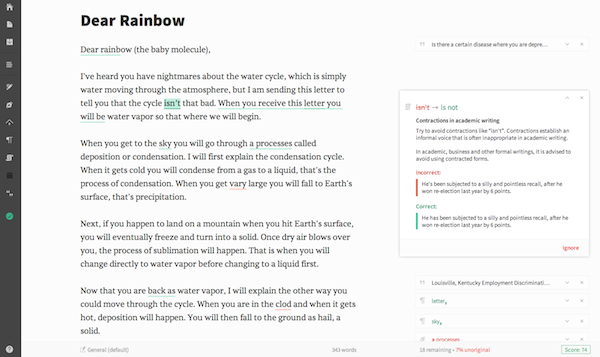
The Grammarly®Editor, online version
Cons
It’s worth noting at this point that the gentleman who set me up with my free trial of Grammarly mentioned its usefulness as more of a “second set of eyes” as opposed to a replacement for a professional proofreader. After trying it out a few times, I quickly realized what he meant. The proofreader points out whatever it believes may be an error, but it can’t always take the full context of the document into account. Sometimes it incorrectly marks an alternative grammar choice as an error, and other times it misreads the context and lets a mistake slide. This issue was already thoroughly covered in a review by Grammarist, so I won’t go into detail here. In all fairness, that article was written over three years ago, during which time Grammarly does seem to have improved on its shortcomings, but it still can’t fully compensate for the judgment of a human being. Grammarly is good for catching errors you missed yourself, but if you need to proofread a whole book, your best bet is to hire an editor.
Perhaps the biggest drawback I noticed while testing Grammarly is that it isn’t entirely relevant to my style of writing. This isn’t necessarily a con, per se; more of an observation of how the editor seems to be specifically geared toward strictly formal composition. Most of the documents I pasted into Grammarly were short stories, and while the proofreader was right to catch many of my supposed errors (even when set to “Creative – Short Story”), over 90% of them were left untouched due to being creative choices on my part as opposed to actual mistakes (e.g. character dialogue or first-person narrative intended to sound “real”). Perhaps this is more of a testament to the perfectionist editor in me than to Grammarly’s limited usefulness, but I still think it’s worth mentioning for the benefit of writers as meticulous about grammar as me. If you know exactly what mistakes you’re making, you don’t need to pay for an automatic proofreader to tell you the same thing.
I should also mention that I do much of my writing on an iPad, and though I was able to use Grammarly well on my laptop, I couldn’t access it at all through my mobile device due to incompatibility issues. I can’t say if the editor works on non-iOS devices because I don’t own one, so this is mostly a note of caution to Apple users, but it may apply to anyone who frequently writes on a smartphone or tablet. Until Grammarly comes out with a mobile app, you’ll have to make due with your device’s built-in spell checker.
Summary
Pros
- Grammatical error corrections with explanations
- More thorough than standard word processor spelling and grammar checkers
- Built-in thesaurus for vocabulary enhancement
- Plagiarism checker
- Settings for different types of documents
- Google Chrome plugin for universal use
Cons
- More useful for formal writing than creative writing
- Misses some grammatical errors
- Incorrectly marks some alternative grammar choices as mistakes
- Incompatible with mobile devices
Conclusion
Is Grammarly worth your money? I’d say that depends on three factors: what you write, how often you write, and how proficient you are at editing on your own. If you’re constantly typing up formal documents, articles and emails that require impeccable spelling and grammar, a premium subscription to Grammarly may be just what you need. If, however, most of your writing consists of poetry or stories that experiment heavily with form and style, then a standard free grammar checker may suffice. Use your discretion when deciding how much help you really need to edit your work.
Based on my brief experience with it, Grammarly certainly seems to warrant the respect it gets, and though I may not need it now while my writing is concentrated in the experimental short story format, I may consider attaining a full subscription for future proofreading of my novels and academic papers (both of which are included in the aforementioned preset list). In any case, Grammarly has certainly gained this writer’s attention, and I believe it deserves the attention of any writer looking for a better automated editor than what the standard word processor has to offer. To paraphrase the famous proverb, your grammar is only as strong as your weakest misplaced comma.
Bonus: I used Grammarly to proofread the first draft of this blog post. Before editing and after including vocabulary and plagiarism checking, it came out to 35 critical issues and a score of 91 out of 100. Thanks, Grammarly!
Today’s creative writing post is brought to you by Grammarly, the World’s Best Grammar Checker. I was not compensated for this review. All opinions expressed here are my own. For more information on Grammarly, visit http://www.grammarly.com/grammar-check. Thanks for reading! Happy writing!
What If? Writing Prompts: Nature I
It’s Earth Day, and that means it’s the perfect time to appreciate the wonder that is our natural world. And what better way for writers to get into the spirit of the day than with some nature-themed “What If?” Writing Prompts? In celebration of our beautiful Earth, here’s a fresh batch of prompts for you, the first in this segment set to the theme of nature. Enjoy, and Happy Earth Day!
 What if… every single human in the world suddenly disappeared?
What if… every single human in the world suddenly disappeared?
(Source: AsapSCIENCE video – “What If Humans Disappeared?“)
What if… there were a superhero among wild animals who fought against the destruction of their habitat?
What if… the trees in deforested areas could talk?
What if… everyone in the world accepted that climate change is a real and ongoing threat to life as we know it?
What if… all of humanity made an effort to protect the environment and preserve the natural wonders of our Earth?
Have fun writing your own stories about nature and the Earth!
If you have any “What If?” writing prompt suggestions (for any theme), please feel free to share them in the comments below. Ideas I like may be featured in future “What If?” posts, with full credit and a link to your blog (if you have one)! Also, if you’ve written a piece based on an idea you’ve found here, be sure to link back to the respective “What If?” post. I would love to see what you’ve done with the prompt! Thank you!
The Art of Science and the Science of Art: Research
Back to the subject of art and science! Since starting a discussion on this topic last month, I’ve already talked about the reading and writing aspects of the comparison between art and science. Now I’m inspired to get into another topic that has held my interest for as long as I can remember: research. How do these two sides compare when it comes to looking things up?
How the Art is like the Science
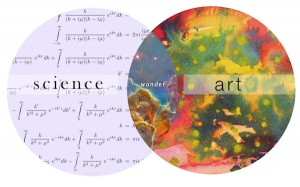
At the intersection of Art and Science lies Wonder. – The Imaginary Foundation
Research is a technique that every serious writer must master, regardless of medium. Scientists need to acquire purely factual information to form a solid foundation of credibility for their studies and continuously guide their work toward new discoveries. Journalists have to be aware of all the facts of a story in order to accurately convey the news to their readers/viewers. Even fiction writers and poets draw ideas from real life to paint a vivid image with the details in their stories and poetry. No matter what we choose to write, we should always do at least a little research to make our work believable, and that’s why the best writers do well to keep reference books, articles, and search engines handy at all times.
What makes most literature relatable is that no matter how fantastic the details may be, there’s always some base of truth with which the reader can connect, whether it’s the spectrum of emotions shown by fictional characters or world news that directly or indirectly affects us. As writers, it’s up to us to curate the ideas we want to share with our audience and present them in a way that makes our writing fresh and interesting, for fiction and non-fiction alike.
Research is a universal term for looking up information that we can put to good use. The differences, however, lie in the purposes of this practice…
How the Art is unlike the Science
Artistic writing is widely popular as an escape from reality for the fascinating stories one can only find in fiction. That being said, a writer can’t expect for more than a handful of readers to enjoy their work unless they can somehow bridge the gap between the fictional world of their stories and the real world of their audience. This is where research plays a key role. Writers of historical fiction have to know as many specific details as possible of the past events around which they construct their tales. Science fiction writers should have at least a basic understanding of real scientific principles before attempting to pass their stories off as even remotely plausible. Murder mysteries and thrillers rely on plots that could happen in real life in order to achieve their full effect, and romance novelists need to understand human nature and relationships if they want to make their characters relatable. Research is important for all forms of artistic writing, and fiction writers who master it will find their craft all the more enriching for it.
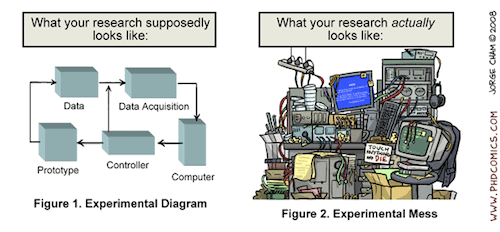
(Courtesy of PHD Comics)
Scientific writing, on the other hand, thrives on research taken to a whole other level. While research for writing may be optional for many artists, it is unequivocally mandatory for scientists. Not only are we expected to read everything related to our field of interest, but we have to do so before we even think about writing our own work! If I learned anything from my first years as a Biology student, it’s that you can’t expect to make it in the scientific community unless you’re constantly reading. Academic papers, books, news articles, any source of information relevant to your studies can and should be perused. Science is all about the progression of knowledge, and in the modern age of the Internet, new information is emerging faster than ever: every week, in fact, if not every single day. In short, research is an enhancement that artists choose to pursue, but lack of research is a hindrance that scientists cannot afford.
Like many aspects of writing, research is something of an art and a science itself. It may not be easy for every writer to acquire the habit, but once you get the hang of it, you’ll find that research is an invaluable practice that will help you connect with your readers and elevate your writing to wonderful new heights. Best of luck! Thanks for reading!
Five Reasons I Love Science Fiction
After starting a set of posts on the comparison between artistic and scientific writing, today I’d like to take a break to discuss a related topic that’s been on my mind for a while: science fiction. With all the brainstorming I’ve been doing regarding science and art, I figured now would be the best time to talk about why I love the intersection between the two so much. So on that note, here is a brief list of reasons why I love science fiction. Enjoy!
1) It reconciles my two great passions: science and art.
 As I’ve made all too clear by now, both science and art fascinate me immensely. I’m incredibly proud to be able to call myself a scientist and an artist, so their crossover area is basically my playground. It stands to reason, therefore, that science fiction is right up my alley. Combining elements of both worlds, sci-fi stories appeal to my artist side for the creative reimagining of our universe and to my scientist side for the exploration of the potential in real scientific theories. For someone like me who practically lives in this intersection, it doesn’t get much better than that.
As I’ve made all too clear by now, both science and art fascinate me immensely. I’m incredibly proud to be able to call myself a scientist and an artist, so their crossover area is basically my playground. It stands to reason, therefore, that science fiction is right up my alley. Combining elements of both worlds, sci-fi stories appeal to my artist side for the creative reimagining of our universe and to my scientist side for the exploration of the potential in real scientific theories. For someone like me who practically lives in this intersection, it doesn’t get much better than that.
2) It stimulates real scientific thinking.
One thing I notice whenever a major sci-fi movie comes out is a surge in discussions – both online and off – about how realistic it is. With films like Gravity and Interstellar comes a rise in articles and social media posts by actual scientists explaining the real workings of physics in outer space and pointing out the common inaccuracies in these movies. The same thing happens (albeit to a lesser degree) with stories about other scientific themes such as time travel, dystopian futures, robot uprisings and zombie apocalypses. And I, for one, love having those discussions with my friends and fellow academics. As a writer, I have nothing against a little artistic license, but as a biologist, I encourage the clarification of facts to make sure the truth isn’t buried too far beneath the fiction. As I like to think of it, ignorance is bliss, but knowledge is power.
3) It’s the ultimate “What if?”
I’m sure by now it’s only too obvious that “What if?” is my favorite type of writing-related question. I love imagining what sorts of stories could play out around a single major condition, and no genre can pique that curiosity like science fiction, because changing one detail means altering the entire universe as we know it. What if there’s intelligent life on other planets? What if computers had the intellectual capacity of humans? What if there were a virus that could turn people into zombies? Writing science fiction is like creating infinite parallel worlds with incredible possibilities, all with the power of our minds! How cool is that?
4) It unites people like no other genre can.
Some may not necessarily see this as a good thing, but I’ve always found it interesting how sci-fi has this indomitable power to bring people with similar interests together in a way that no other genre of fiction can. I make no secret of being a so-called nerd and proud of it, so knowing there are tons of people out there who also embrace that eccentric side of themselves is heartwarming. Science fiction offers a unique common ground for those of us who choose to occasionally forget this world and explore the possibilities contained within alternate realities. And if we can share that passion with each other, that makes our love of sci-fi all the more enjoyable.
5) It’s fun to indulge in!
For all the above reasons and more, science fiction is fun, as much to read and watch as to write. I love getting lost in alternate worlds, and sci-fi offers that escape in so many different flavors that I sometimes wonder how I manage to tear myself away from it long enough to face reality again. I could spend hours indulging in these fascinating stories, so if you appreciate science and art like I do, science fiction is definitely the genre for you! Enjoy!
What about you? Why do (or don’t) you like science fiction?
What If? Writing Prompts: Humor I
I’m afraid I have some bad news. The thing is, I’m getting a little tired of these “What If?” Writing Prompts, so this will probably be my last post for this segment. It’s hard to come up with these all the time, and I just can’t handle it anymore. Sorry, it’s been fun, but it’s time to move on.
April Fool’s! I know, that was totally lame, but I couldn’t resist. Of course these never get old; I love coming up with new writing prompts every month! But anyway, I realized about a month ago that April 1st would fall on a Wednesday this year, and while thinking about possible jokes for that week’s creative writing post, it suddenly occurred to me that I had yet to include comedy on my list of “What If?” themes.
So without further ado, here’s a new batch of prompts for you, set to one of the hardest genres to write for: humor. I hope you’ll find these ideas fun, and may they inspire you to come up with your own! Enjoy!
 What if… a witch cursed you to speak only in rhymes?
What if… a witch cursed you to speak only in rhymes?
What if… you were lost and the only person around to ask for directions were a mime?
What if… your life became a musical for a day?
What if… an annoying sound played in your head every time you heard someone tell a lie?
What if… you could hear pets say what they really think of their owners?
Have fun writing your own humorous stories!
If you have any “What If?” writing prompt suggestions (for any theme), please feel free to share them in the comments below. Ideas I like may be featured in future “What If?” posts, with full credit and a link to your blog (if you have one)! Also, if you’ve written a piece based on an idea you’ve found here, be sure to link back to the respective “What If?” post. I would love to see what you’ve done with the prompt! Thank you!
The Art of Science and the Science of Art: Writing
Last week, I started a new series of posts on the overlap of my two favorite topics: art and science. After discussing the similarities and differences between artistic and scientific reading, today I’d like to talk about the next major aspect of this creative intersection: writing. How do art and science compare when it comes to composition? Let’s explore!
How the Art is like the Science

At the intersection of Art and Science lies Wonder. – The Imaginary Foundation
When thinking about what art and science have in common, one of the first similarities to come to mind is the written word. Ideas of any kind are often best communicated through writing, so it’s important to know how to convey one’s thoughts as eloquently as possible. As I previously mentioned about reading, our minds have learned to make sense of prose through a set order, and writers of fiction and non-fiction alike must respect that order if their work is to be understood.
Whether we write artistically or scientifically, we have to know how to grab our readers and hold their interest throughout a given work. A good title will attract an audience that shares our interests. The introductory portion establishes our style and the main idea of the whole piece. We must include a clear objective and the promise of action by the middle of the work, and that action must lead to a resolution of conflict by its conclusion. In art and science alike, everything we write must somehow tie together in the end.
Much like reading, writing is fundamentally the same whether it’s done artistically or scientifically. Yet art and science also differ greatly, and in my opinion, nowhere do these disparities shine brighter than in their composition.
How the Art is unlike the Science
When we write artistically, we have all the freedom in the world to experiment with words and ideas to turn out an interesting piece. We can write about anything from magic and myth to true events in history. We can start in the middle and halfway through jump back to the beginning. We can elaborate on the tiniest details or leave everything but plot up to the reader’s imagination. We can write themes and endings that are either thoroughly conclusive or open to interpretation. The possibilities are endless.
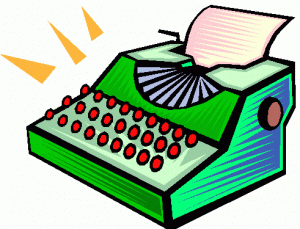 The same freedoms generally don’t apply to science, however. Because academic papers all have to be comprehensible in the same manner, they come with strict rules and guidelines for how to write them. That isn’t to say that we can’t be creative at all, of course; just that there are far more restrictions to work with than in artistic writing. We’re more than welcome – even encouraged – to demonstrate creative thinking, as long as it’s presented with a title, an abstract, an introduction, materials and methods, results, a discussion, and a conclusion. When the point is to convey our ideas as clearly as possible, organization is key.
The same freedoms generally don’t apply to science, however. Because academic papers all have to be comprehensible in the same manner, they come with strict rules and guidelines for how to write them. That isn’t to say that we can’t be creative at all, of course; just that there are far more restrictions to work with than in artistic writing. We’re more than welcome – even encouraged – to demonstrate creative thinking, as long as it’s presented with a title, an abstract, an introduction, materials and methods, results, a discussion, and a conclusion. When the point is to convey our ideas as clearly as possible, organization is key.
Writing prose is both an art and a science at its core, so it’s up to the writer to master the balance between these approaches and know how to make the most of their individual strengths to turn out truly creative works. And that is exactly what I love about creative writing: it appeals to both the artist and the scientist in me! I sincerely hope you can appreciate this beautiful intersection of art and science as much as I do! Thanks for reading!
The Art of Science and the Science of Art: Reading
I mentioned at the beginning of January that it would be difficult for me to keep up with writing because I would be particularly busy this year. I’m currently in the middle of pursuing a Master’s degree in Marine Ecology, so much of my time is being occupied with science. And with the various types of writing I’ve been trying to manage at the same time, that’s gotten me thinking about the similarities and differences between writing artistically and writing scientifically.
So to take advantage of my position between both worlds, I’d like to start discussing on my blog the comparisons between art and science. There are so many points to note, however, that the best way to go about it would be to create a whole subcategory around this topic! That’s why I decided to distribute my observations among several posts. To start off, here’s a brief discussion on the similarities and differences between art and science when it comes to reading. Enjoy!
How the Art is like the Science

At the intersection of Art and Science lies Wonder. – The Imaginary Foundation
Whether it’s for artistic inspiration or scientific knowledge, reading is reading at its core, simple as that. We read for one main reason: to acquire new ideas and information. That’s why when we read prose of any form, we always look for the same fundamental outline behind the content.
The first thing we seek is that big opener: a killer title and a few great introductory lines to hook us from the get-go. These are what help us decide whether the rest of a piece is worth reading, so a good first impression is always important. A striking title will draw our attention to the piece as a whole, and the first few lines after that will give us a sense of the author’s style and direction for the rest of the work.
From there, we move on to the introduction. Whether it’s the opening scene of a novel or the initial paragraphs of a scientific paper, a good introduction properly sets the tone and establishes the theme of the work, so that by the time we get to the heart of it, we understand what it is we’re reading about. That’s when we want to start seeing action. Conflict exists as much in fantasy worlds about magic beings as it does in the real world of scientific discoveries, and we want to see it resolved through the characters’ or the author’s methods until a conclusion is reached either through climactic scenes and denouement or analyzed results and discussions. And let’s not forget that satisfying takeaway feeling we seek when the reading is done!
So reading fiction and reading non-fiction are actually quite similar in many ways. But perhaps it’s in their differences that the true beauty lies…
How the Art is unlike the Science
Of course, outside of a basic structure, art and science differ significantly in their overall purpose. In one, we seek to lose ourselves in narrative, to feed our imagination with fictitious accounts of people who (in most cases) exist only in our heads. In the other, we seek to fill our minds strictly with the truth and consequently expand our knowledge and understanding of the real world around us. Perhaps that’s the greatest deciding factor when choosing which to read: whether we want to engage in fiction or reality.
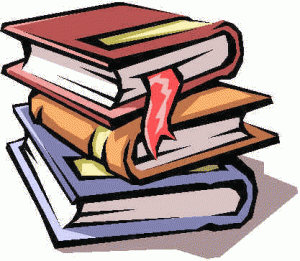 Art is intended to appeal to our creative desires. We indulge in artistic composition because it offers an escape from the common and tedious details of everyday life. Even true stories offer this release when narrated creatively enough, which is why even the most fascinating of real-life tales can only be considered such when told with a touch of art to embellish the facts. Literature is first and foremost a form of art, and thus any written work takes skill in creative technique in order to draw us in and keep us hooked to the very last word.
Art is intended to appeal to our creative desires. We indulge in artistic composition because it offers an escape from the common and tedious details of everyday life. Even true stories offer this release when narrated creatively enough, which is why even the most fascinating of real-life tales can only be considered such when told with a touch of art to embellish the facts. Literature is first and foremost a form of art, and thus any written work takes skill in creative technique in order to draw us in and keep us hooked to the very last word.
Science, on the other hand, appeals to our logical side. Those of us who seek knowledge about the real world indulge in scientific papers and non-fiction texts to satisfy our natural human curiosity. Unlike fiction that freely comes in various styles, scientific papers must always follow the same basic outline: title, abstract, introduction, materials and methods, results, and discussion. We always know exactly what to expect when we read academic texts, so we can focus on the content and zero in on the information we want. Writing itself is something of a science, for our minds have long been trained to search for a logical sequence in order to make sense of any piece of prose. If a written work is worth the time to read, we’ll come out a little smarter for it.
When it comes to creative writing, art and science are quite different in many ways, but they can also be surprisingly similar. I hope you’ll enjoy exploring the “likes and unlikes” between my two favorite topics with me in the future! Thanks for reading!
What Kind of Grammar Nerd Are You? A Quiz by Grammarly
Ready to celebrate National Grammar Day? Then you’d better hop in a time machine and jump back to last week, because it was March 4th. Sorry! Being the total ditz/busy grad student that I am, I neglected to mark the date on my calendar and completely missed my chance to kick off Grammar Day on my blog. That’s OK, though, because every day is a good day to appreciate grammar!
To mark the occasion, the good folks over at Grammarly have created a quiz to help you determine what kind of grammar nerd you are. Take the quiz and share your result in the comments below!
And while you’re at it, why not take a moment to try out their grammar checker? It’s quick, highly accurate, and best of all, free! Prolific writers, take note: you can also subscribe to a premium account on Grammarly.com for as low as $11.66 a month to gain full access to a spelling and grammar checker ten times more powerful than your word processor!
So what are you waiting for? Proofread your texts with Grammarly and start celebrating proper use of grammar today! Happy Grammar Day!
Oh, and in case you’re wondering, I’m a Pedant’s Grammarian. No surprises there!
Today’s creative writing post is brought to you by Grammarly, the World’s Best Grammar Checker. All opinions expressed in this article are my own. For more information on Grammarly, visit http://www.grammarly.com/grammar-check. Thanks for reading! Happy writing!
What If? Writing Prompts: Fantasy/Science Fiction III
I hope you’re in the mood for some more “What If?” Writing Prompts! This week’s batch features some new fantasy and science fiction prompts for you to enjoy. See what sorts of fantastic tales you can spin around these ideas! Have fun!
 What if… magic were a subject taught in school?
What if… magic were a subject taught in school?
What if… mirrors functioned as portals into a backwards universe?
What if… computers could read human thoughts?
What if… you discovered you had the ability to bend time and space?
What if… you had supernatural powers that you couldn’t control?
Good luck creating your own fantasy and science fiction stories!
If you have any “What If?” writing prompt suggestions (for any theme), please feel free to share them in the comments below. Ideas I like may be featured in future “What If?” posts, with full credit and a link to your blog (if you have one)! Also, if you’ve written a piece based on an idea you’ve found here, be sure to link back to the respective “What If?” post. I would love to see what you’ve done with the prompt! Thank you!



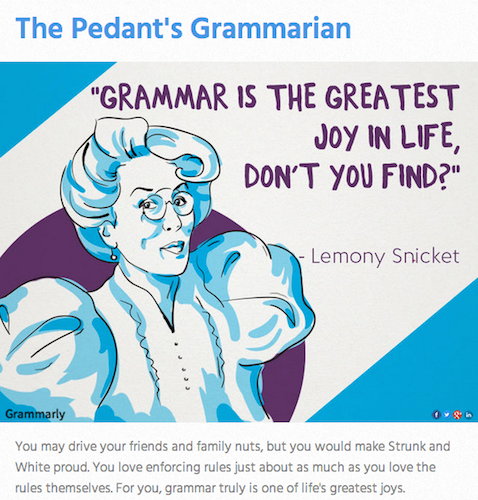

Recent Comments